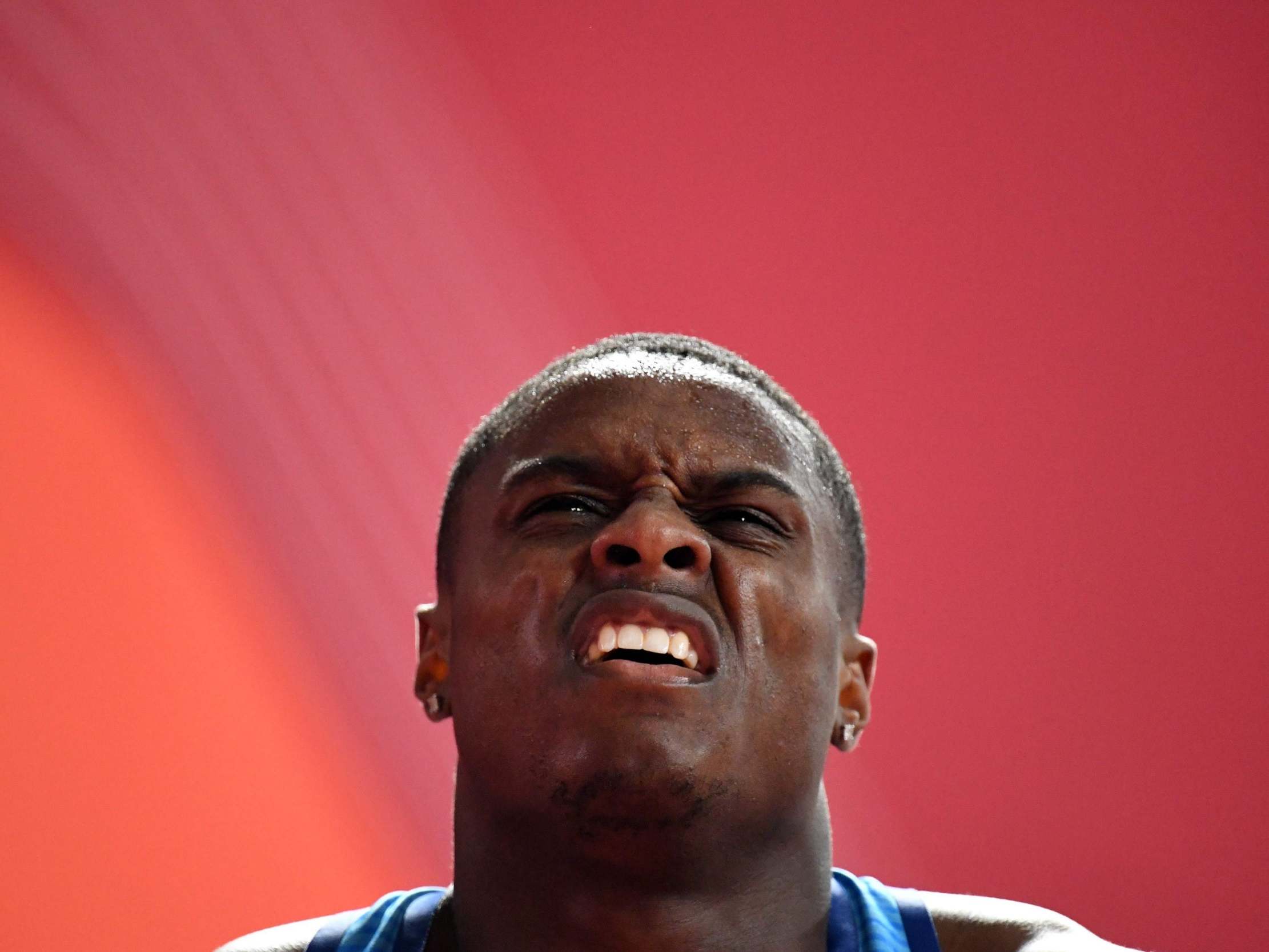Dai Greene on athletics’ whereabouts failures: ‘These guys are getting away with it’
The former 400m-hurdles world champion Dai Greene tells Lawrence Ostlere why he was unimpressed by Christian Coleman’s excuses for a recent anti-doping violation


Your support helps us to tell the story
From reproductive rights to climate change to Big Tech, The Independent is on the ground when the story is developing. Whether it's investigating the financials of Elon Musk's pro-Trump PAC or producing our latest documentary, 'The A Word', which shines a light on the American women fighting for reproductive rights, we know how important it is to parse out the facts from the messaging.
At such a critical moment in US history, we need reporters on the ground. Your donation allows us to keep sending journalists to speak to both sides of the story.
The Independent is trusted by Americans across the entire political spectrum. And unlike many other quality news outlets, we choose not to lock Americans out of our reporting and analysis with paywalls. We believe quality journalism should be available to everyone, paid for by those who can afford it.
Your support makes all the difference.“Every athlete has a whereabouts failure at some point,” says Dai Greene. “Maybe there’s a doctor’s appointment you need to be at and you might forget to update the system. That might be once in your career. But three in 12 months…?”
Three in 12 months triggers an anti-doping violation, and it is why the world’s fastest man, Christian Coleman, is facing possible a two-year ban. Coleman put out a rambling statement last week taking responsibility for only one of his whereabouts failures, largely pinning the blame on doping control officers for failing to call him when they arrived at his house in December while he was out at a nearby mall.
Last week Greene used Twitter to pick apart Coleman’s excuses, sentence by sentence. One line by the American sprinter read: “I have no idea what I could’ve done to avoid this.”
“Not gone shopping,” replied Greene.
The 34-year-old Welshman is a popular member of the British athletics community – a former 400m-hurdles world, Commonwealth and European champion with his sights on one final Olympics in Tokyo – and he received plenty of backing online from across the sporting world. Coleman, however, was less impressed. “You spent a lot of time making a negative thread about me so I hope you gained what you were hoping to,” he replied. “God bless.”
It’s not for me to decide if he’s doping or not
Whereabouts failures have come into focus recently with the high-profile cases of both Coleman and Salwa Eid Naser, the world 400m champion. When Naser ran a stunning 48.18sec to clinch gold at last year’s Worlds in Doha, many credited her with the unofficial world record given the only quicker times in history were both run by Eastern Bloc stars of the 1980s when government-led doping was rife. But it later transpired Naser had been allowed to run despite committing three whereabouts failures in the previous 12 months, and was only suspended after missing a fourth in January.
Elite athletes are typically tested every three to four weeks. They are required to log their location for an hour every day so that doping control officers can test them at random, and most pick a window early in the morning like 6-7am when they know they will be at home in bed. “Part of being a professional athlete is the idea that you give one hour a day, every day,” says Greene.
Naser enraged the athletics community by claiming it was “normal” to have three misdemeanours in a year, while Coleman said the intrusive system made him feel “anxious”, yet it is hard to believe world-leading sprinters could be quite so careless with their careers. “I don’t buy into that in the slightest,” Greene says. “If he was anxious then he wouldn’t have gone out to the shops during his hour slot.
“To do three [failures] in that short period of time is a bit much really. I don’t know how you manage to do that. I’ve never missed three in my whole career. When I was travelling I would always remember to update it, and other athletes would remind each other, ‘have you done your whereabouts?’. If it’s your job, you should update it.”

The Athletics Integrity Unit (AIU) is under scrutiny for the way in which it has handled the cases. It never explained why Naser was allowed to compete at the world championships, which the British 400m runner Martyn Rooney linked to her popular status in the Middle East where the Worlds were staged, while Coleman was previously able to avoid a ban on a technicality by backdating one of his violations. “I feel like if you’re a lesser athlete without much financial support you’re going to be punished straight away and you don’t really have much of a leg to stand on, says Greene, “whereas these guys seem to be getting away it.”
Coleman bemoaned that he wasn’t given a phone call by testers, something he claimed was standard protocol, but Greene says he has never been called by a doping control officer. “Christian wasn’t even at his testing slot by his own admission, so it sounds like he doesn’t fully understand the system. We’ve always been told ‘do not expect a phone call, they will not call you’, because it’s up to you to be in the spot. It’s not for them to chase you.”
Coleman fumed at receiving a possible ban when two of his charges were nothing more than missed paperwork, but then that is largely what constitutes a whereabouts failure. Of the five types of violation, only one relates to actively missing a test; the rest are for failing to accurately provide your location. That might sound a long way form being caught red-handed with a needle in your arm – Coleman has never failed a drugs test – but then perhaps the distinction is unhelpful. Someone caught doping and someone too disorganised to prove they’re not doping are two sides of the same coin, because neither are actively fighting for clean sport. To borrow a phrase, maybe it’s not enough simply not to dope – you have to be actively anti-doping.
“It’s not for me to decide whether I think he’s doping or not,” says Greene. “But if everyone started missing tests all the time and were allowed off, that would create an uneven playing field and allow people the opportunity to dope. You have to have these rules and I feel like three violations in the space of a year isn’t difficult to adhere to. It could probably be extended to two or three years.”
Join our commenting forum
Join thought-provoking conversations, follow other Independent readers and see their replies
Comments